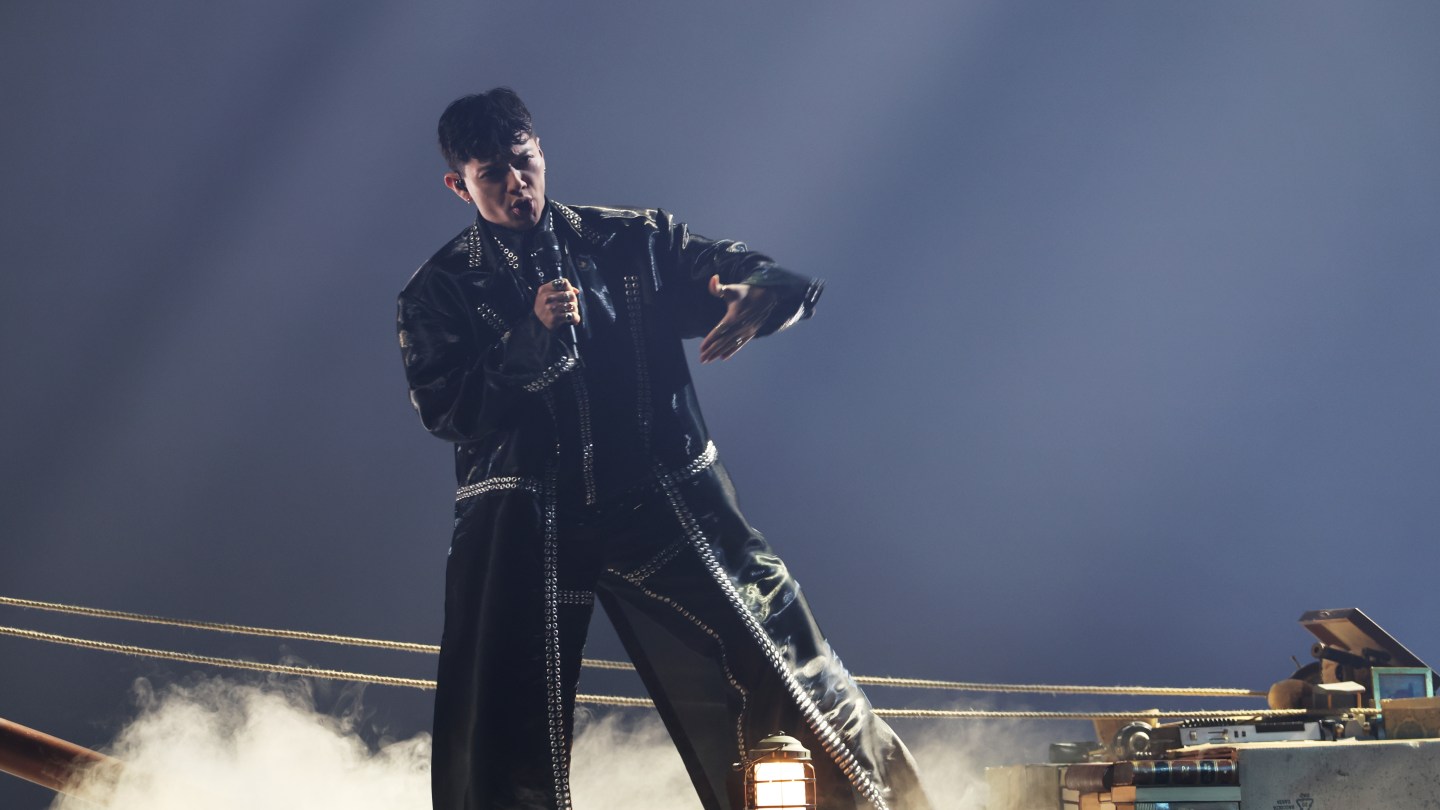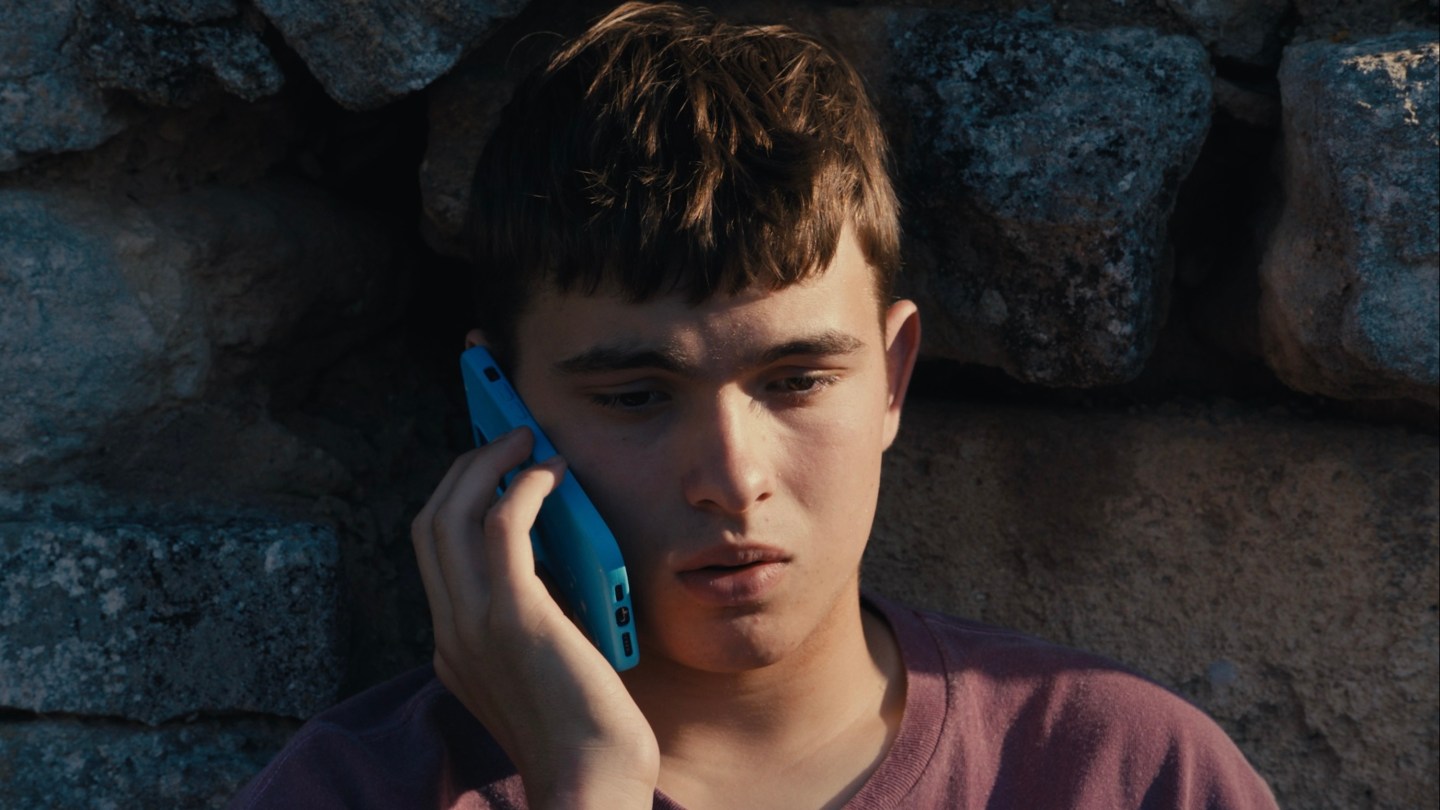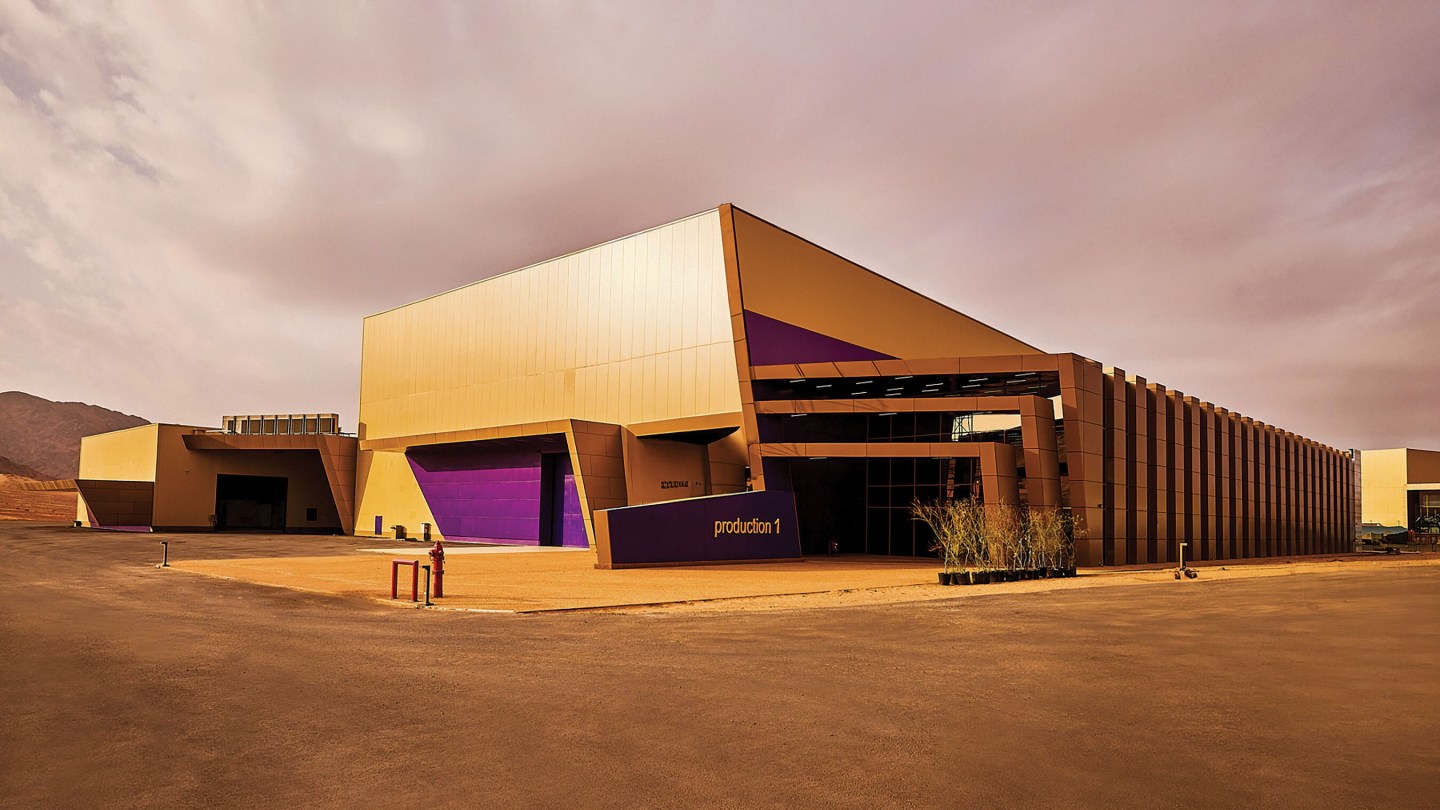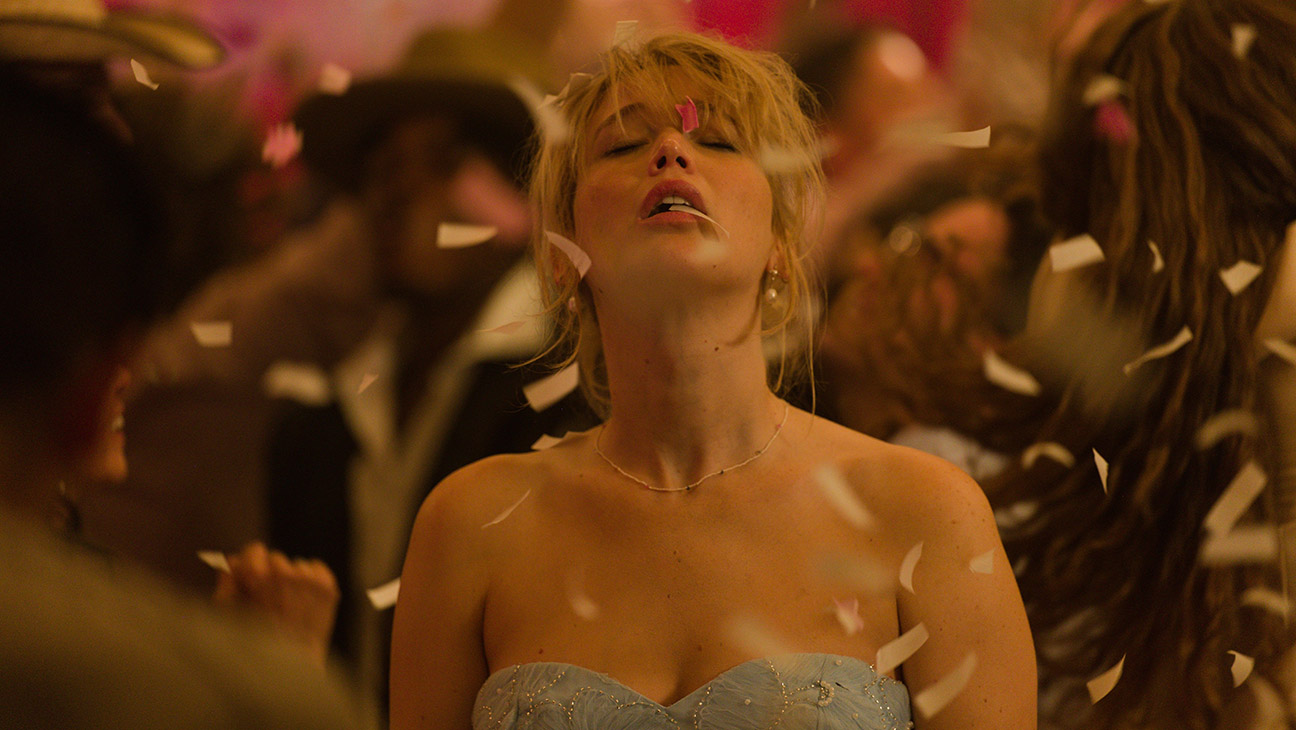
Austrian performer Johannes Pietsch won the 69th Eurovision Song Contest on Saturday night while Israel’s Yuval Raphael came second after a tense showdown at the Grand Final in Basel, Switzerland.
Pietsch, an Austrian-Filipino opera singer who was raised in Dubai — and performs professionally under the name of JJ — sang the operatic ballad “Wasted Love” in a ramshackle dingy amid strobe lighting on stage, and earned 436 points. He beat Israeli entrant Raphael as she finished second with 357 points, while also winning the public vote section of the competition.
The top five in a competition voted on via a combination of national music industry juries and the global public included Estonia coming third with 356 points, Sweden with 321 points and Italy with 256 points.
The Grand Final included Raphael singing her power ballad, “New Day Will Rise.” During her performance, a man and a woman attempted to rush the stage. A spokesman for Swiss broadcaster SRG SSR told The Hollywood Reporter that two protestors threw paint at a crew member before their arrest.
For the second year running, the Eurovision contest was overshadowed by protests over the European Broadcasting Union’s decision to allow an entrant from Israel to participate as that country’s conflict in Gaza continues. Raphael, a survivor of the Nova festival massacre on Oct. 7, 2023, did a solo performance around a giant chandelier-like staircase on stage during the Grand Final.
The Hunger Games of pop music had 26 contenders battling it out with original songs, whether tormented ballads or electro-pop bonkers, to win Eurovision glory. The competition even included Lithuania’s Tavo Akys wearing a District 12 Style long-sleeve tunic as he performed.
The Eurovision content had its usual mix of sparkly costumes, elaborate sets and light shows and, of course, cheering fans in the arena and at home. Coming into the Grand Final, the bookies’ favorites included Sweden’s entry, the Finnish-Swedish music comedy trio KAJ, and their accordion-led sauna song “Bara Bada Bastu,” an ode to steamy wood-cabin bliss, and the French singer Louane, who performed her torch song “Maman” with a sand tornado swirling around her in the St. Jakobshalle indoor arena in Basel.
This year’s competition also had controversy around Estonia’s Tommy Cash with bendy leg dancing performing the caffeinated pop song ‘Espresso Macchiato,” about another country, Italy, and its coffee, which some Italians criticized for mocking their culture with stereotypes.
In all, 26 acts were seen Saturday night that had been pared down from 37 contenders taking part in two semi-final competitions earlier this week. The annual singing contest’s Grand Final opened with a video where host presenters Hazel Brugger, Sandra Studer and Michelle Hunziker waited nervously for extreme sport athletes to deliver the glass microphone Eurovision trophy to the arena.
Then last year’s winner, Switzerland’s Nemo, performed their song “The Code” against a splashy laser light show, followed with a flag parade of 26 country finalists, with all contestants welcomed on stage to rapturous cheers from flag-waving fans in the arena audience and in an adjoining soccer stadium filled with another 36,000 spectators who at one point during the Eurovision Grand Final show did a mass performance of the ABBA hit “Waterloo.”
JJ’s record label, Warner Music, issued a statement following his win. “JJ’s incredible talent, combined with his innovative sound, has truly resonated with audiences across Europe and beyond, attracting new fans with every performance,” said Doreen Schimk and Fabian Drebes, co-presidents of Warner Music Central Europe. “Eurovision is the world’s most-watched music television show, and we are thrilled to see him shine on such a global stage. We are proud to be part of JJ’s journey.”
#Eurovision #Austrias #Johannes #Pietsch #Wins





